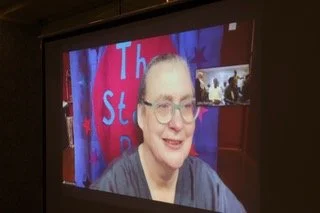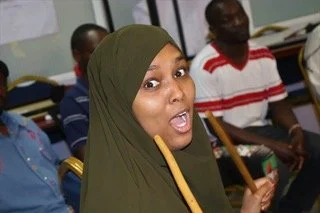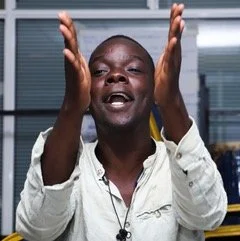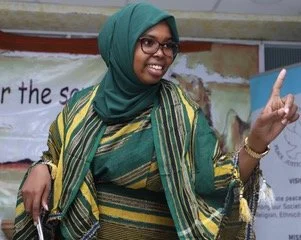Under the Same Sky - Using Science Storytelling to Enhance English Language Learning By Cassandra Wye (Scientist-Storyteller and HUP volunteer)
Cassandra Wye - Scientist-Storyteller and HUP volunteer
Science storytelling - what is that?
Science stories are folktales about the Earth and Sky that have been used for centuries to communicate knowledge about our world. For example: They can - explain the process of insulation, the transmission of heat and the benefits of dehydrating food - all within a folktale about a duck keeping warm throughout winter.
Science storytelling engages children in exploring and learning about science.
Every community has these stories and would have traditionally used these stories for education but over time the use of these science stories - has been forgotten. So how can we bring it back?
So you are using stories to teach science, right? Not exactly. Not to “teach’ science - but to enthuse and engage children in exploring and learning about science.
Stories are great for sparking children’s interest and imagination in science. Stories don’t offer a scientific explanation, but they do have the power to captivate children and inspire them to be curious, to ask questions. Once we have caught their interest - then we can start talking about the science embedded within the story.
Stories are a hook upon which we can hang a lesson.
Interactive stories increase engagement with the session.
• Starting a science lesson with a story - helps children to focus on the session.
• Making that story interactive - increases engagement with the session.
• Encouraging them to consider the science behind the story - increases participation in the
session.
Under The Same Sky
Turning science from a passive to an active learning process.
But I am an English Language teacher ... why would I “do” science? Because using science stories helps to enhance children’s use of the language of science.
By:
• Developing subject oracy - an understanding of the science concepts that are the building blocks of science learning
• Encouraging them to think about and discuss the science behind the story. Many science stories are open-ended - so you can encourage children to develop their own ending.
• For example: Which part of the body do YOU think - works the hardest?
Develop their thinking about science, their communication of science - and of course enhancing their use of English Language, whilst doing so
• Harnessing their enthusiasm for science.
Once you start telling stories about science - especially stories about space, you will find:
• You engage children usually dis-engaged by storytelling or a language lesson
• You can encourage them to share their enthusiasm and knowledge for the subject and build their confidence to communicate
Science storytelling encourages learners to share their enthusiasm and knowledge.
Communicating in an additional language can be really hard work. Having a subject that they love - encourages less confident English learners to participate.
• Reinforcing their understanding of science
By exploring the concepts of science in English - you are going children a second chance to understand the science, especially helpful for un-confident Science learners.
But there is so much to deliver already- how can I teach science as well?
Under The Same Sky
There is lots of ways that the English and Science curriculums overlap. For example: In grade 2 English - there is the topic “In the Garden”. In Grade 3 Science - they explore Plants
But how can I do this - I am not trained in science?
Join Cassandra’s training - and find out!
Cassandra has developed training to show how you can use science storytelling within your
Language Learning sessions - in ANY language, in ANY curriculum.
It is MUCH easier than you think!
Science storytelling in action.
Cassandra will be running this training FREE for HUP teachers, volunteers and supportersaround the globe
Wednesday 13 July 2022 4 - 6pm Palestine time
Teaching younger learners ( Up to Palestine Grade 4)
Wednesday 20th July 2022 4 -6 pm Palestine time
Teaching older learners (Up to Palestine Grade 7)
Training will be via Zoom and hosted by HUP
Places are limited - please contact Cassandra to book : cassandra.wye@gmail.com
This training is funded by British Council Africa
Photos are taken from training sessions in Kenya delivered remotely with Kenyan storyteller
John Name





